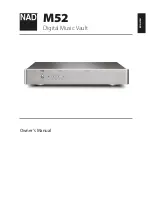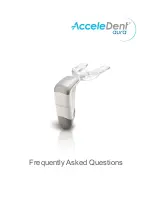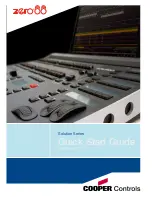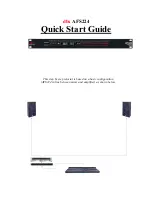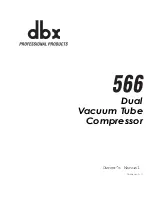
APEX™ QUICK RELEASE DIE
QS-26300-6
1
Preparing the Press for Use of the Apex™
The benefits of the Apex™ Quick Release Die are fully reali
zed when calibrated for use with your
samples. Please take time to read carefully through this Quick Start Guide and follow the
procedures described. Always consult the User Instruction Manual (UIM) for full details of
operation and follow any additional instructions that we may issue from time to time. Please
take note of the disclaimer and warnings set out in this Quick Start Guide and the Specac Limited
Conditions of Sale.
The Apex™ Quick Release Die is to be used in conjunction with
a Specac press with an Apex
™
pressing anvil and locator plate. Proper fitment of the anvil and locator items to your press is
essential for safe and reliable operation of the die.
1) Fitting the Top Pressing Anvil to a Press Leadscrew
Remove the standard top bolster anvil fitted to the leadscrew of the Press and replace with the
new pressing anvil for the APEX Die. Both anvil types are held into the hollow recess at the tip of
the leadscrew by the fit of the O-ring on the anvils. The standard anvil is carefully pulled out of the
leadscrew and the APEX Die anvil is pushed back into place as far as it will go for the O-ring to hold.
Note
: when correctly fitted, the anvil will be flat and level, and the sealing O-ring will not be visible,
as shown in figure 1.
2) Fitting of the Base Locator Plate into the Press
The base locator plate is placed onto the Press lower pressing piston. The recess on the underside
of the base locator provides correct and centralized positioning. The locator plate has two dowel
location pins or a raised edge which is used to centralize the APEX Die when it is placed into the
Press. The APEX Die is positioned such the outer sleeve of the APEX Die touches both dowel pins or
the raised edge. It
must not
be placed on top of the dowels.
Figure 1 Correct fitment of the Anvil: flat
and level without a visible O-ring
Figure 2 Improper fitment of the Anvil, with
a visible tilt.
Figure 3 Base locator plate correctly installed
with locating pins facing upwards
Figure 4 Base locator plate incorrectly installed with
recessed surface facing upwards







